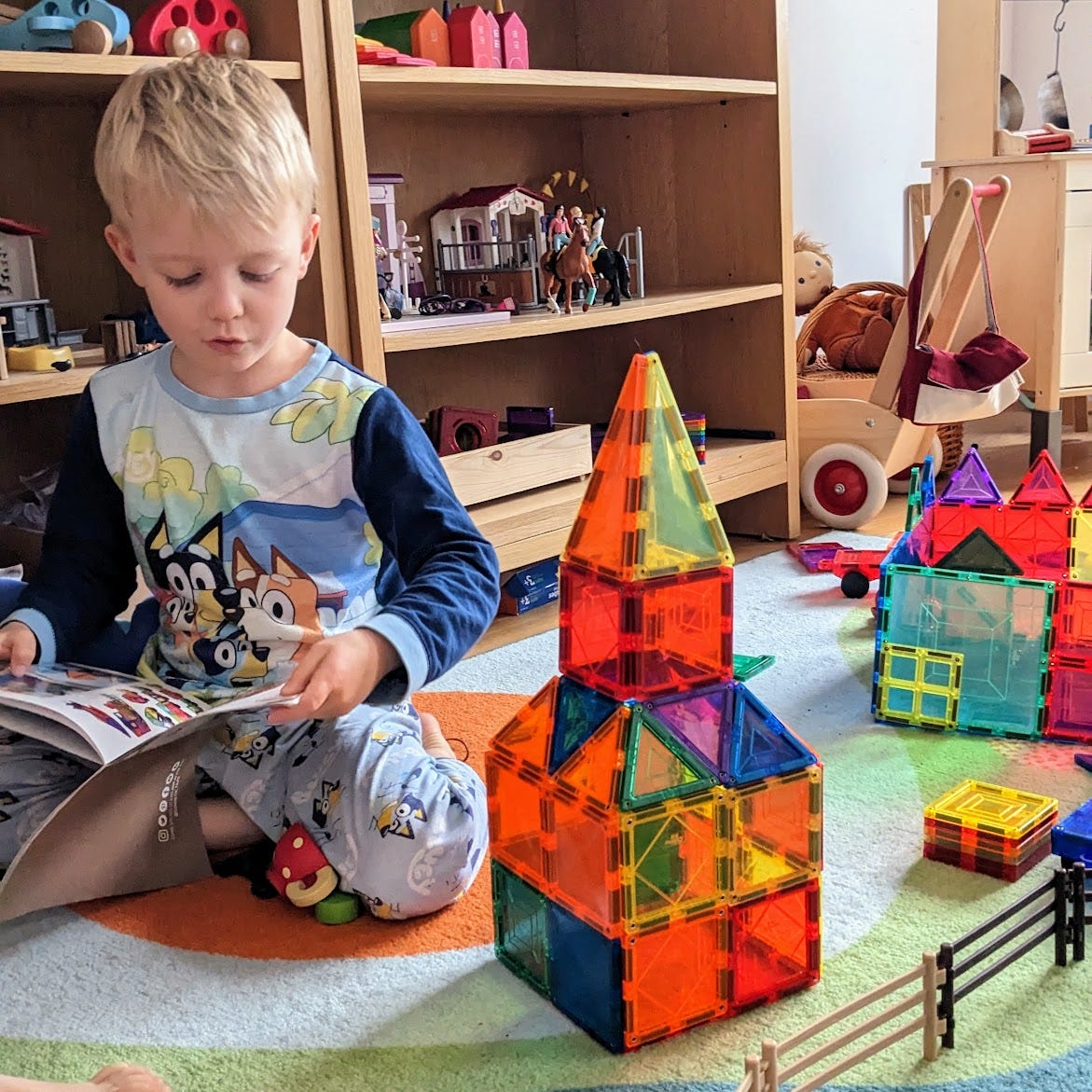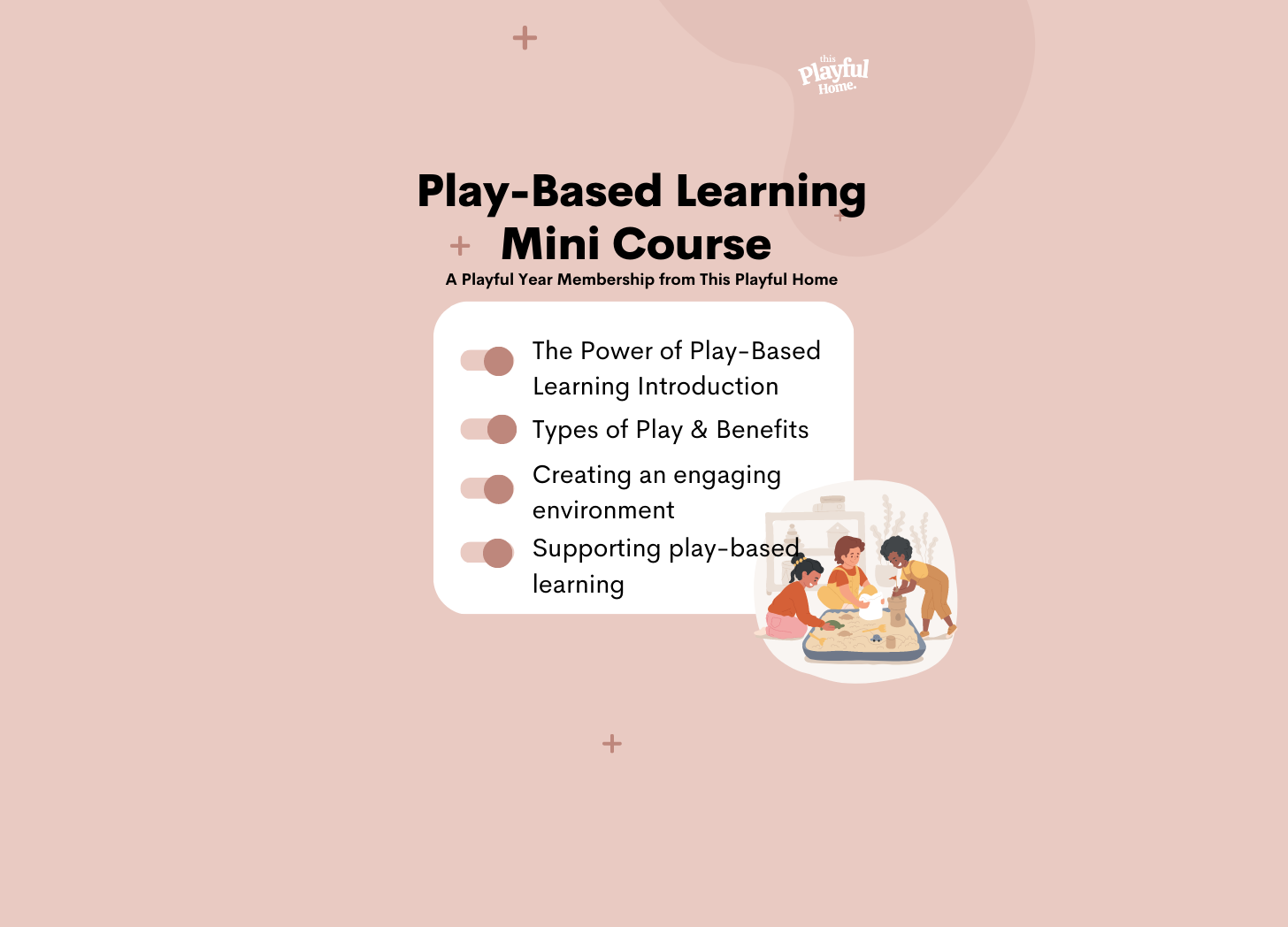Welcome to the first part of our 4-part email series for May: “The Power of Play-Based Learning.” If you’ve been following me for a while now, you’ll know that I’ve been an advocate for play-based learning for many years now.
Every day, I see the benefit a child-led approach when I watch my children play, create and do their schoolwork. Just recently, my youngest son (now 5) was learning about 3D shapes in school - he could grasp the concepts quickly because he has spent so many years manipulating magnetic tiles to build constructions.
If you think about it, teaching children the different types of 3D shapes on a flat, 2D piece of paper doesn’t add up - it’s hard for young children to grasp that the shape can be rotated to see all of the sides! Likewise with other mathematical concepts like counting (1:1 correspondence), adding and subtracting.
As much as possible, learning in the early years should be done through play.
From the perspective of being both a parent of 3 and a teacher, I know how hard it can be to trust in play, especially when the trend in schools worldwide seems to be to push worksheet lead academic learning earlier and earlier. It’s true that tests of academic learning can be graded and tracked - it’s easier to see progress when it’s all written down whereas progress in a play-based scenario is more subjective and requires a lot of observation. Whilst you might not be able to change your child’s school or reform the education system, you can absolutely emphasise a play-based approach to learning at home.
This series aims to introduce you to the concept of play-based learning, highlighting its benefits and explaining its importance in early childhood education. Throughout this series, we’ll explore how play-based learning enhances cognitive, physical, and social-emotional development, the role it plays in education, and how it differs from traditional teaching methods. Let’s dive in and unravel the power of play-based learning.
May at a glance:
The Power of Play-Based Learning: this email
Types of play - and the benefits: 9th May
Creating an engaging environment: 16th May
Supporting play-based learning: 23rd May
What’s included in the paid membership?
Access to this article and the other newsletters in this mini course series
Printable resources
Journal prompts and reflection questions
Access to the Downloadable resources library
Seasonal Rhythms Guide and Printable resources
New mini courses every month
The content below is part of the Power Play Mini Course which is exclusive to paid subscribers. To access the content, including printable resources and guides, please click the link below.





